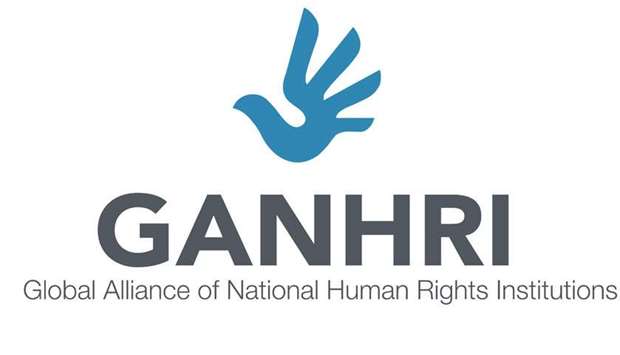HE Chairman of the National Human Rights Committee (NHRC) Dr. Ali bin Smaikh Al Marri, who is also Secretary General and Vice President of the Global Alliance of National Human Rights Institutions (GANHRI) affirmed that there is an urgent need to sign a memorandum of understanding between the United Nations and the Global Alliance to strengthen coordination for the United Nations system-wide, allowing strategic support to national human rights institutions and their protection throughout the world.
In this context, HE Dr. Ali bin Smaikh Al Marri noted the importance to take advantage of the role of national human rights institutions in achieving the United Nations Strategic Plan 2030 to ensure human rights and fundamental freedoms throughout the world.
In his meeting with UN Secretary-General Antonio Guterres in New York, Dr. Al Marri stressed that the new Strategic Plan, which the Global Alliance is overseeing to finalize, attaches great importance to the establishment of strategic cooperation and coordination with the United Nations, based on the importance of the role that national human rights institutions within the framework of the Global Alliance can play in achieving the strategic reform plan pursued by the UN Secretary-General of by 2030.
He noted that the reforms undertaken by Antonio Guterres were an appropriate opportunity to get a strategic support for the United Nations system-wide, in order to establish, promote and protect national human rights institutions throughout the world.
HE GANHRI's Secretary General and Vice President reiterated the importance of signing a memorandum of understanding with the United Nations that would establish further strategic cooperation and coordination for the United Nations system-wide in the light of the successful experience resulted from the tripartite partnership between the GANHRI, the UN High Commissioner for Human Rights and the UN Development Program, which is an excellent model that leads to positive achievements.
The presence of strong and independent national human rights institutions in line with the Paris Principles has been recognized as an indicator of progress for sustainable development, particularly in the national institutions index, HE said during his meeting with the UN Secretary-General.
He also welcomed the commitment of many States to establish or strengthen their national human rights institutions, for example through the universal periodic review (UPR) process or in the voluntary national reviews submitted to the UN High-level Political Forum.
HE added that at the moment, however, there are currently only 76 countries that has national human rights institutions with A-status accreditation, representing 39 per cent of the United Nations member states, pointing out that this stressed the urgent need to strengthen strategic coordination and cooperation between the United Nations and the Global Alliance to reach the required progress by 2030.
HE Dr. Al Marri suggested that the UN Secretary-General, in coordination with the Global Alliance, the United Nations Development Program and the Office of the United Nations High Commissioner for Human Rights, develop a joint strategy to promote the establishment and strengthen the national human rights institutions in all regions of the world, in line with the Paris Principles and the national human rights institutions indicator.
This strategy, he said, could include coordination in the area of prevention, since national human rights institutions are often responsible for reliable and evidence-based information on human rights situations that may lead to conflict, and as such they are in an ideal position for early warning and provide an advice on the implementation of conflict prevention measures.
He also noted the importance of a United Nations system-wide approach to the support and protection of national human rights institutions, including those operating in conflict or other difficult circumstances, or were subjected to reprisals and other acts of intimidation.
HE Dr. Ali bin Smaikh Al Marri emphasised on the importance of a UN system-wide approach to support and protect national human rights institutions, including those operating in conflict or other difficult circumstances, or were subjected to reprisals and other acts of intimidation.

